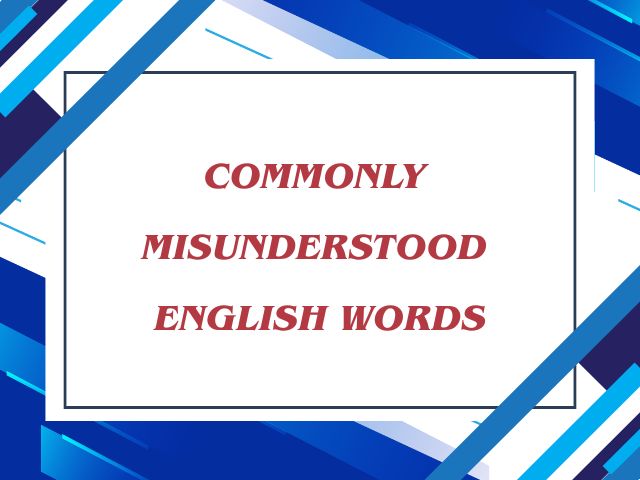Các Cách Diễn Đạt Thời Gian, Địa Điểm Và Lý Do (Phần 2)
When, where, why, whenever, wherever
Trong Anh văn giao tiếp cho người đi làm, có nhiều cách để diễn đạt thời gian, địa điểm và lý do một cách chính xác và hiệu quả. Thông qua việc sử dụng các cách diễn đạt này, chúng ta có thể truyền đạt thông tin về thời gian, địa điểm và lý do một cách chính xác trong giao tiếp tiếng Anh. Dưới đây là một số cách phổ biến để diễn đạt thông tin này.
8. Ta có thể sử dụng when, where và why để nhấn mạnh thời gian, nơi chốn, hoặc nguyên do:
Lily went to see Henry on Friday.
Friday was the day when Lily went to see Henry.
Tom works at the Wild Duck.
The Wild Duck is the restaurant where Tom works.
Pete went to town to buy Dan’s birthday present.
The reason why Pete went to town was to buy Dan’s birthday present.
9. Ta sử dụng whenever mang ý nghĩa ‘at any time when’ (vào bất kỳ lúc nào khi) và where mang ý nghĩa ‘(at) any place where’ (ở bất kỳ nơi nào mà):
Whenever I see him, he asks how you are.
(= Every time I see him . . .)
The manager will see us whenever we want.
(= at any time we choose)
Wherever you find water, there are always plants.
(= every plate)
These days you can take out money wherever you are.
(= in any place)
Thực hành văn phạm
3. Ta có thể sử dụng when, where và why để giải thích thời gian nào, nơi nào và lý do nào ta đang nói đến, thí dụ như trong một bản tin thời sự:
The police have located the house where the car thieves were living, but so far they do not know the reason why they left the stolen cars in the garage.
4. Ta có thể sử dụng whenever nếu thời gian sự kiện diễn ra không quan trọng, như khi ta muốn nói với ai hoặc muốn gặp ai:
Give me a ring whenever you feel like coming round.
5. Ta cũng có thể sử dụng whenever mang ý nghĩa ‘every time that’ (mỗi lần mà). Tình huống ta muốn nhấn mạnh việc lặp lại một kinh nghiệm xấu;
Whenever we go to that restaurant, I always feel ill the next day.
6. Ta sử dụng wherever khi không quan trọng về nơi chốn. Điều này mang ý nghĩa ‘anywhere’ (ở bất kỳ nơi nào):
Sit wherever you like.
Hoặc ‘everywhere’ (mọi nơi):
It rained wherever we went this summer.
Bài tập
C. Reporting a crime
Read this newspaper article. Complete the sentences using when, where or why.
Bomb makers escape police
The police have located the house (0) where the bombers were living. However, they arrived (1) . . . . . . . the house was empty. They said that they found clues to the location of the factory (2) . . . . . . . the materials were bought. They have searched the room, including the bedrooms (3) . . . . . . . the bombers slept. They think that Friday was tht day (4) . . . . . . . the bombers abandoned the house. The police are now trying to work out (5) . . . . . . . the bombers left in such a hurry and where they are now.
D. Planning a party
Anna is writing to her friend Tom about her party. Complete her imail using when, where, why, whenever or wherever.
Hi Tom,
I hope you’re well. I’m writing to answer your questions about the party tomorrow evening. The reason (0) why we’re having the party is to celebrate the end of the exams. It was Friday evening (1) . . . . . . . Jeny and I decided to organize something – she had just got back from Vito’s (you know, the Italian restaurant (2) . . . . . . . she works) and she had seen some people she knows from college. They were having a special meal because their exams had just finished. It’s this Wednesday (3) . . . . . . . I finish, so we thought we would celebrate too!
Thank you for offering to come round a bit early to help prepare every thing. Please come (4) . . . . . . . is convenient for you – I’ll be at home all day. Could you bring some balloons? When I was in town yesterday, I couln’t find any, (5) . . . . . . . I looked. I think last week’s festival might be the reason (6) . . . . . . . there weren’t any left in the shops.
Give me a ring (7) . . . . . . . you need to. See you at the party!
Anna
E. Talking about a trip to scout camp
Sam and Tom are talking on the phone about the happy times they spent at scout camp as young boys. Complete their conversation using one of the words in brackets in each space.
SAM Do you remember that place in Devon (0) where (where / whenever) we stayed (1) . . . . . . . (until / when) we were in the scouts?
TOM I do. I particularly remember the morning (2) . . . . . . . (when / while) we woke to find our tents surrounded by cows. We went to sleep, but someone forgot to close the gate into the field (3) . . . . . . . (that / where) the tents were, and the cows wandered in (4) . . . . . . . (while / as soon as) we were sleeping.
SAM And we couldn’t do anything (5) . . . . . . . (until / where) we got them back into the field (6) . . . . . . . (wherever / where) they were supposed to be.
TOM And do you remember that dog that turned up (7) . . . . . . . (why / whenever) we went swimming in the river? (8) . . . . . . . (As soon as / Until) we set off from the camp, it appeared from nowhere.
SAM Yes, it sat by our clothes (9) . . . . . . . (while / before) we were in the water as if it was guarding them.
TOM I don’t think that was the reason (10) . . . . . . . (while / why) it waited there. Perhaps it expected us to give it something to eat (11) . . . . . . . (when / why) we came out of the water.
SAM I think one or two boys did give it something. But it never came all the way back with us. (12) . . . . . . . (when / By) the time we were back at the camp, it had always disappeared.
TOM I enjoyed those scout camps (13) . . . . . . . (where / wherever) we went, but that stay in Devon was the one I liked the most.
Đáp án
C.
1. when 3. where 5. why
2. After 4. when
D.
1. when 4. whenever 7. whenever
2. where 5. wherever
3. when 6. why
E.
1. when 6. where 11. when
2. when 7. whenever 12. By
3. where 8. As soon as 13. wherever
4. while 9. while
5. until 10. why
Những cách diễn đạt thời gian, địa điểm và lý do mà bài viết đã chia sẻ là nền tảng vững chắc để bạn tự tin hơn trong giao tiếp tiếng Anh. Nắm vững các cấu trúc này giúp bạn truyền tải thông điệp một cách rõ ràng, chính xác và chuyên nghiệp.
Để nâng cao khả năng vận dụng ngữ pháp và phát triển toàn diện kỹ năng giao tiếp, Trung tâm Ngoại ngữ Dương Minh mang đến khóa học tiếng Anh giao tiếp được thiết kế chuyên biệt. Với phương pháp giảng dạy hiện đại và môi trường học tập năng động, khóa học sẽ giúp bạn biến lý thuyết thành kỹ năng thực tế, tự tin ứng dụng tiếng Anh trong mọi tình huống. Hãy để Dương Minh đồng hành cùng bạn trên hành trình chinh phục tiếng Anh giao tiếp lưu loát và hiệu quả.
Nguyễn Minh Sơn (20.12.2012)




